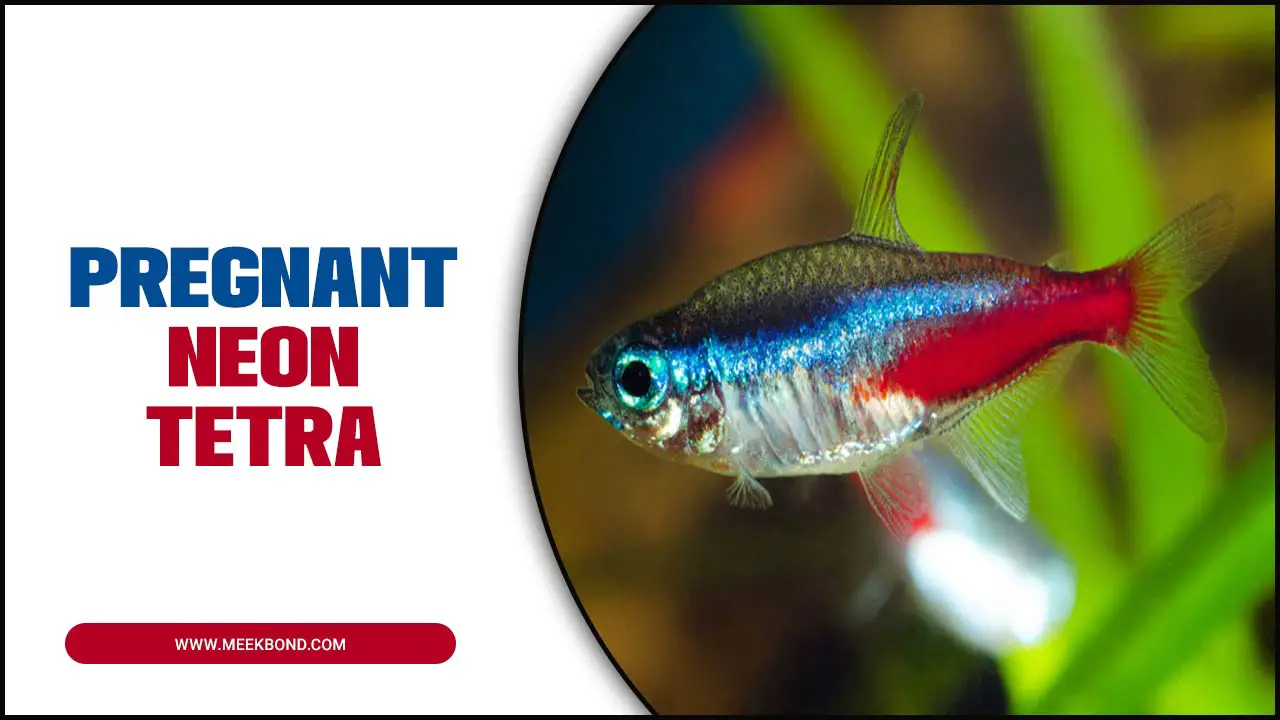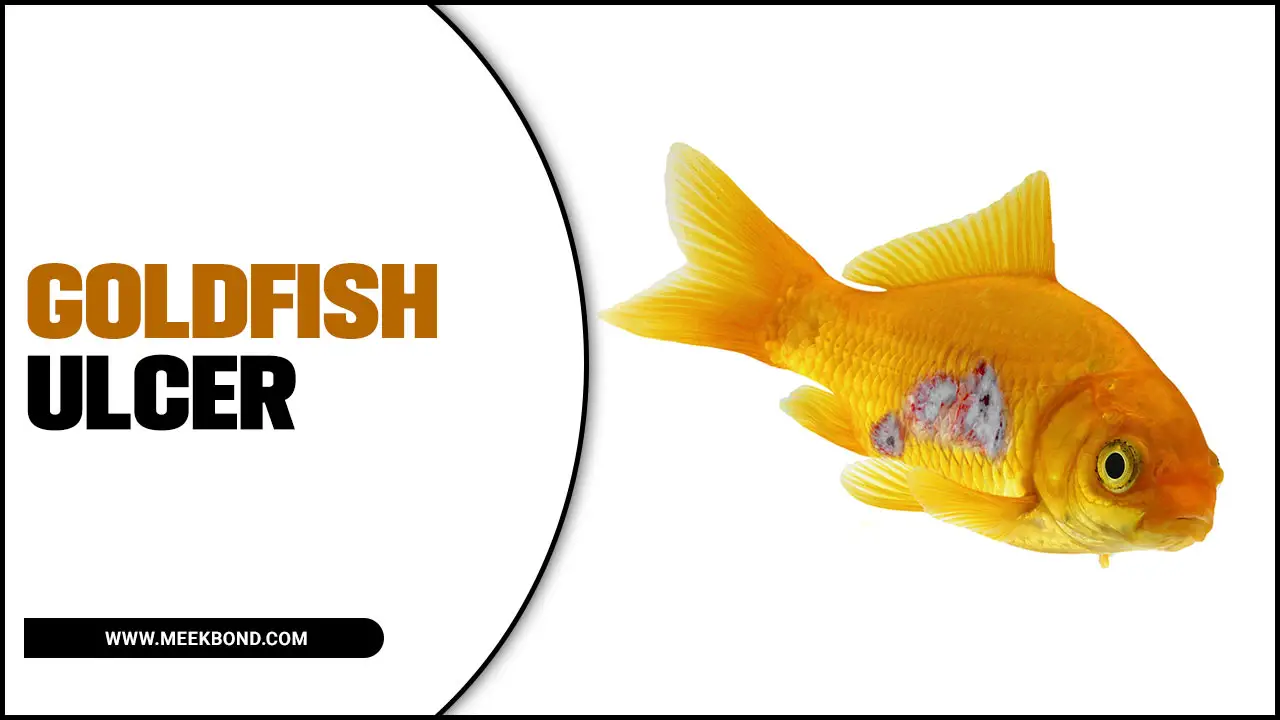Angelfish are the most popular freshwater aquarium fish. They are popular for their beautiful appearance, elongated fins and stunning colours. These fish can grow up to six inches long and require a spacious swimming tank.
They are omnivores and require a balanced diet of both plants and animals. Angelfish are also notorious for being aggressive towards other fish, especially during the breeding season. Therefore, choosing tank mates carefully is essential. Their owners can train angelfish to recognize them and even perform simple tricks, making them popular for intelligence. Angelfish are popular aquarium fish popular for their graceful beauty and unique appearance.
However, despite their popularity, these fish can be prone to several health problems, including fin rot. As a responsible fish owner, it is important to understand the causes, symptoms and treatment options of angelfish fin- rot to ensure the health and well-being of your fish. We will explore the causes of angelfish fin rot. We will also discuss common symptoms of the condition.
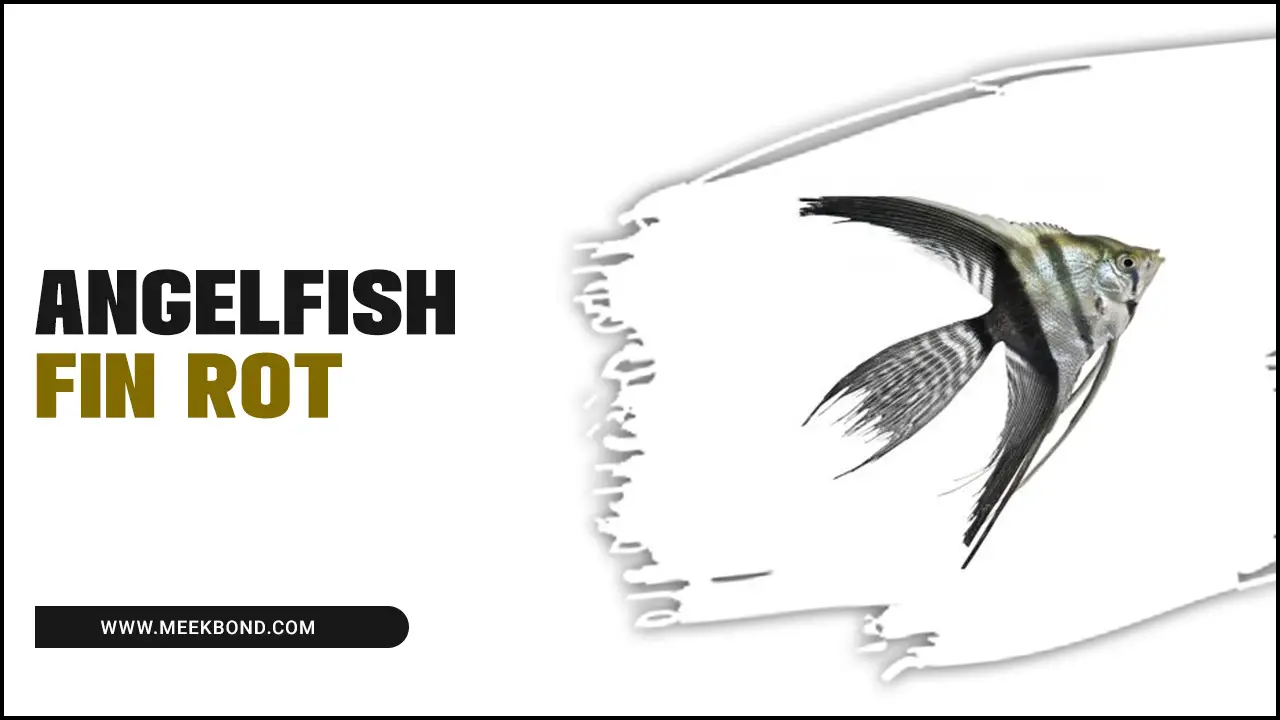
What Causes Fin Rot In Angelfish?
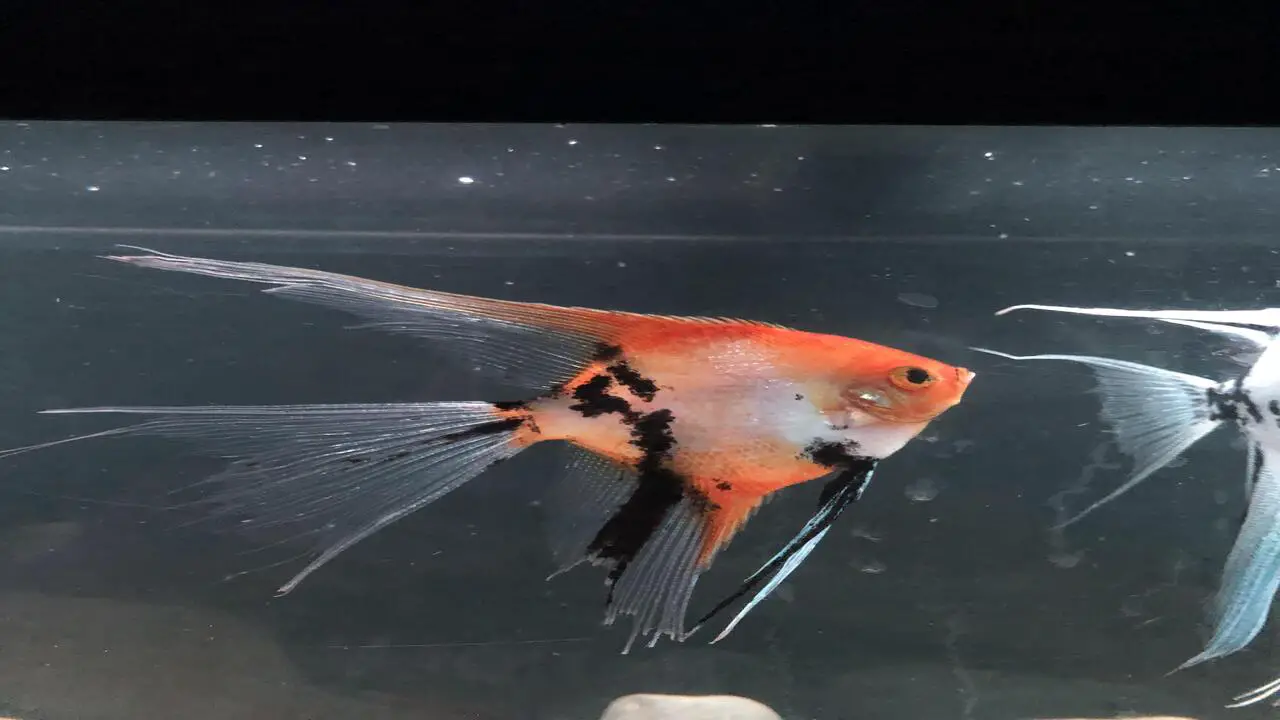
Fin rot is a common condition affecting many different fish species, including angelfish. A bacterial infection causes it, which can quickly spread if not treated promptly. Fin rot is a common problem among Angelfish, and various factors can cause it. Proper care and attention can prevent each factor contributing to fin rot development in angelfish.
- Poor water quality: If the water in your fish tank is not clean and well-maintained, it can become a breeding ground for harmful bacteria and other pathogens that can cause fin rot.
- Overfeeding: Overfeeding your Angelfish can lead to excess waste and uneaten food in the tank, contributing to poor water quality and increasing the risk of fin rot.
- Lack of proper filtration: Harmful toxins and bacteria can build up in the water, leading to fin rot.
- High ammonia levels: High ammonia levels in the tank can damage the fish’s immune system, making it more susceptible to fin rot.
- Stress: Stressful conditions such as overcrowding, aggressive tank mates, or sudden changes in water temperature can weaken the immune system of your Angelfish, making it more prone to fin rot.
- Poor diet: A diet lacking essential nutrients can weaken your fish’s immune system, making it more prone to infections such as fin rot.
Symptoms Of Angelfish Fin Rot
Angelfish are popular freshwater fish popular for their unique appearance and peaceful temperament. Unfortunately, they are susceptible to fin rot, harming their health and well-being. Fin rot is a bacterial infection that affects the fins and tails of fish, causing them to deteriorate over time. Here are symptoms of angelfish fin rot to watch out for:
- Fins appear ragged or frayed
- Fins become discoloured or turn black
- Fins appear to be melting away
- Fins have a white edge or appear translucent
- Fins become shorter or stubbier
- Fins become curled or twisted
- Fins appear to be eroding or disappearing
- Fins have a fuzzy or cotton-like appearance
- Fish may become lethargic or lose their appetite
If your angelfish is exhibiting any of these symptoms, it is important to take action immediately. Fin rot can spread quickly and cause serious damage to your fish if left untreated. Once isolated, you should perform a partial water change and clean.
Angelfish-Fin Rot: How To Treat Them
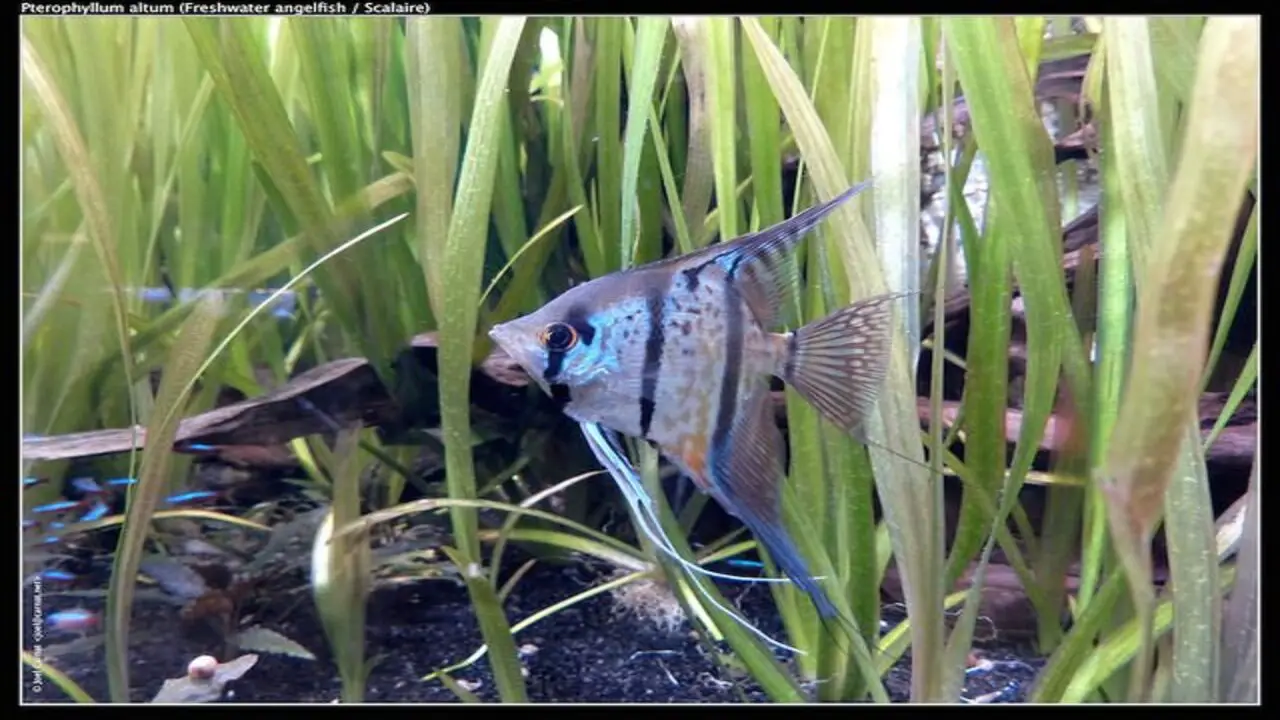
Angelfish are a popular and beautiful species of aquarium fish but are also susceptible to various health problems, including fin rot. Fin rot is a bacterial infection that affects the fins and tails of fish, causing them to become ragged and frayed. Luckily, several treatment options are available to help angelfish recover from fin rot and regain their health.
- Salt Baths: A salt bath is an effective treatment for fin rot in angelfish. This involves adding a small amount of aquarium salt to the water and soaking the fish for a short period of time.
- Antibiotics: In severe cases of fin rot, antibiotics may be necessary to kill the bacteria causing the infection. These antibiotics can be administered orally or through injection.
- Water Changes: Regular water changes are important for maintaining a healthy aquarium environment and can help prevent and treat fin rot in angelfish.
- Aquarium Salt: Adding aquarium salt to the water can help kill bacteria and improve the overall health of angelfish.
- Betadine: Betadine is an antiseptic solution that can treat fin rot in angelfish. It is applied directly to the affected area and left to soak briefly.
Prevention Of Angelfish-Fin Rot
Angelfish are a beautiful addition to any aquarium, known for their unique shape and striking colours. However, like any fish, they are vulnerable to diseases that can harm their health and appearance. One of the most common issues that angelfishes face is fin rot, a bacterial infection that can cause their fins to deteriorate and eventually fall off.
Fortunately, there are several steps that aquarium owners can take to prevent angelfish-fin rot and keep their fish healthy. Firstly, maintaining good water quality is essential for preventing fin rot. Angelfish are sensitive to changes in water parameters, and poor water quality can stress them out and make them more susceptible to infections.
To prevent this, aquarium owners should regularly test their water for ammonia, nitrite, and nitrate levels and perform partial water changes to keep these levels in check. It is also important to avoid overcrowding the aquarium, as too many fish can produce excess waste and further degrade water quality.
Secondly, a balanced diet is crucial for maintaining the health of angelfish and preventing fin rot. Feeding a varied diet that includes both live and frozen foods and high-quality pellets or flakes can provide the necessary nutrients to keep their immune system strong and help.
Natural Remedies For Angelfish-Fin Rot

Angelfish are stunning fish that can bring great joy to any aquarium. However, one common issue that angelfish owners may encounter is fin rot. Fin rot is a bacterial infection that can cause the fins of the fish to become damaged and deteriorate. While medication can be effective, some owners may prefer to use natural remedies. Here are some natural remedies for angelfish-fin rot:
- Indian Almond Leaves: Indian Almond Leaves have anti-bacterial and anti-fungal properties that can help prevent and treat fin rot. They can also help lower the water’s pH, which can create a more optimal environment for the fish.
- Garlic: Garlic is known for its antimicrobial properties and can be added to the fish’s food to help boost their immune system and fight off the bacteria causing the fin rot.
- Aloe Vera: Aloe Vera has healing properties and can be handy to treat the damaged fins of the angelfish. Simply apply a small amount of aloe vera gel to the affected area.
- Salt Baths: Salt baths can be an effective treatment for fin rot. Mixing one tablespoon of aquarium salt per gallon of water and soaking the angelfish for 10 Salt baths can effectively treat fin rot in angelfish. The salt can help to dry out the angelfish skin, which helps to prevent the growth of bacteria.
Tips For Keeping Angelfish Healthy
Angelfish are a popular species of freshwater fish known for their vibrant colours and graceful movements. But, to keep them healthy and happy, following a few simple tips is important. Angelfish are beautiful and popular aquarium fish, but keeping them healthy is important to ensure they thrive in their environment. Here are eight tips for keeping angelfish healthy:
- Maintain Water Quality: Angelfish require clean and well-maintained water to remain healthy. Test the water regularly and keep the pH level between 6.8 and 7.8.
- Proper Diet: Provide angelfish with a varied and balanced diet, incorporating quality flake or pellet food and frozen or live foods such as brine shrimp, daphnia, and bloodworms.
- Avoid Overfeeding: Overfeeding can lead to health problems such as bloating, constipation, and even death. Only feed your angelfish what they can consume in a few minutes, twice a day.
- Regular Water Changes: Regular water changes are crucial to maintaining a healthy angelfish environment. Change 10-20% of the water weekly.
- Temperature Control: Angelfish require a stable water temperature between 75 and 82 degrees Fahrenheit. Use a reliable heater and thermometer to maintain the correct temperature.
- Provide Adequate Space: Angelfish need ample space to swim, as they cannot swim well in cramped conditions. Providing enough space for them can help them stay healthy and prevent stress.
Common Misconceptions About Angelfish-Fin Rot
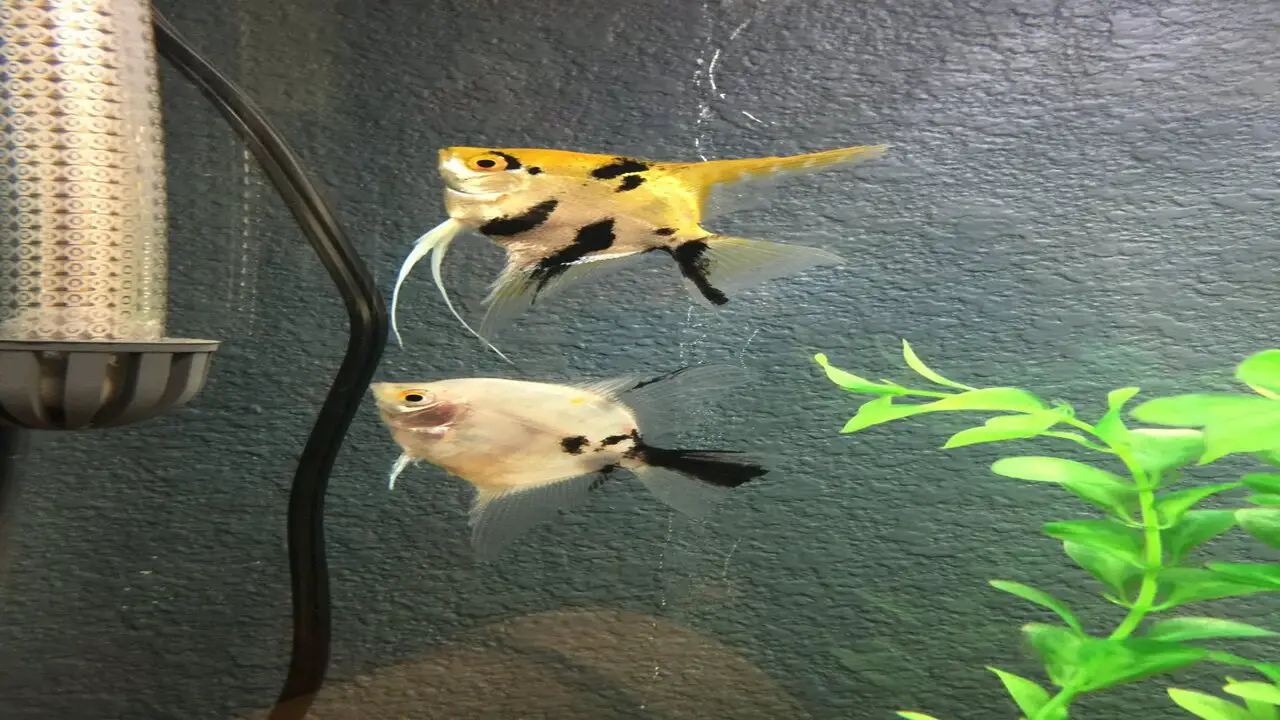
Angelfish-fin rot is a common problem that many aquarium owners encounter. However, several misconceptions surround this condition. One of the most common misconceptions is that fin rot is solely caused by poor water quality. While water quality is certainly a factor, it is not the only cause of fin rot. Other factors, such as poor diet, aggressive tank mates, and stress, can also contribute to the development of fin rot.
Another common misconception about angelfish-fin rot is that it is always fatal. While fin rot can certainly be a serious condition, it is not always fatal. With proper treatment, many fish can fully recover from fin rot and go on to live long, healthy lives.
Some aquarium owners also believe fin rot is contagious and can spread from one fish to another. While it is true that fin rot can spread if left untreated, it is not contagious in the traditional sense. Rather, it is caused by a bacterial infection that can be present in the aquarium environment. Therefore, proper aquarium maintenance and regular water changes can help prevent the spread of fin rot.
Conclusion
Angelfish fin rot is a common issue among fish owners. It is a bacterial infection that can cause the fish’s fins to deteriorate, making it difficult for them to swim. One way to prevent angelfish-fin rot is to maintain a clean and well-circulated tank.
Angelfish fin- rot is a common and treatable condition caused by various factors, including poor water quality, stress, and bacterial infections. By keeping a close eye on your angelfish’s behaviour and physical appearance, performing regular water changes, and providing a healthy diet, you can help prevent fin rot from occurring in the first place.
If your angelfish does develop fin rot, prompt treatment with antibiotics or other medications can help prevent the spread of the infection and promote healing. Your angelfish can live a healthy and happy life with proper care and attention.
FAQs
Why Are My Angelfish Fins Rotting?
Angelfish suffer from a disease called fin rot, which is a bacterial infection of the fish’s fins. The fins may become soft, mushy, and flaky, and the fish swim difficultly. A number of environmental factors, such as poor water quality, a lack of oxygen in the water, and improper feeding or cleaning practices, can cause fin rot. Some species of angelfish are more susceptible to fin rot than others.
What Antibiotics Are Used To Treat Fin Rot?
The antibiotics used to treat fin rot include penicillin, amoxicillin, and tetracycline. These antibiotics kill the fungi that cause fin rot and may also be used to treat other fish diseases. It is important to use antibiotics as a veterinarian directs and avoid using them for any other purpose.
Does Metronidazole Treat Fin Rot?
Metronidazole (also known as Flagyl) is an antibiotic used to treat various conditions, including bacterial and protozoal infections. It has been shown to be effective in treating fin rot in fish, but it is not the only option. It is important to consult with a veterinarian to determine the best treatment for your fish.
Is Metronidazole Good For Fish?
Yes, metronidazole can treat certain bacterial and parasitic infections in fish, particularly aquarium and ornamental fish. However, it is important to follow proper dosing instructions and consult a veterinarian or fish expert before administering any medication to fish.
What Are Common Fish Diseases?
Fish are popular pets and an important source of food worldwide. However, like any living creature, fish can become sick and infected by various diseases. The most common fish diseases include fin rot, ichthyophthiriasis, and dropsy. Fin rot is a bacterial infection that primarily affects the fins and causes them to deteriorate and fall off.

Aquarium passion is all about connecting with the aquatic life and providing education to the public on the importance of these creatures. We showcase a wide variety of marine life through our exhibits as well as working with schools to provide unique learning opportunities for students of all ages.


